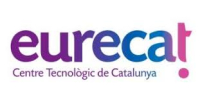ABOUT US




Obesity is one of the world’s most challenging public health problems. Youth obesity has more than quadrupled over the past 30 years, being its prevalence particularly higher in Mediterranean countries such as Italy (34-36%), Portugal (27-29%) and Spain (24-26%). The Mediterranean diet (MD) has been proposed as a suitable dietary model for the prevention and control of CNCD over the entire lifespan. Some cross-sectional studies showed that a high MD adherence is associated with decreased risk of being overweight, obese and affected by metabolic syndrome (MetS) in adolescents from Mediterranean countries.3,4 However, the health effects of MD through well-designed clinical-nutritional intervention studies, and its underlying mechanisms, have been scarcely evaluated in obese adolescents



.jpg)



combia.png)





